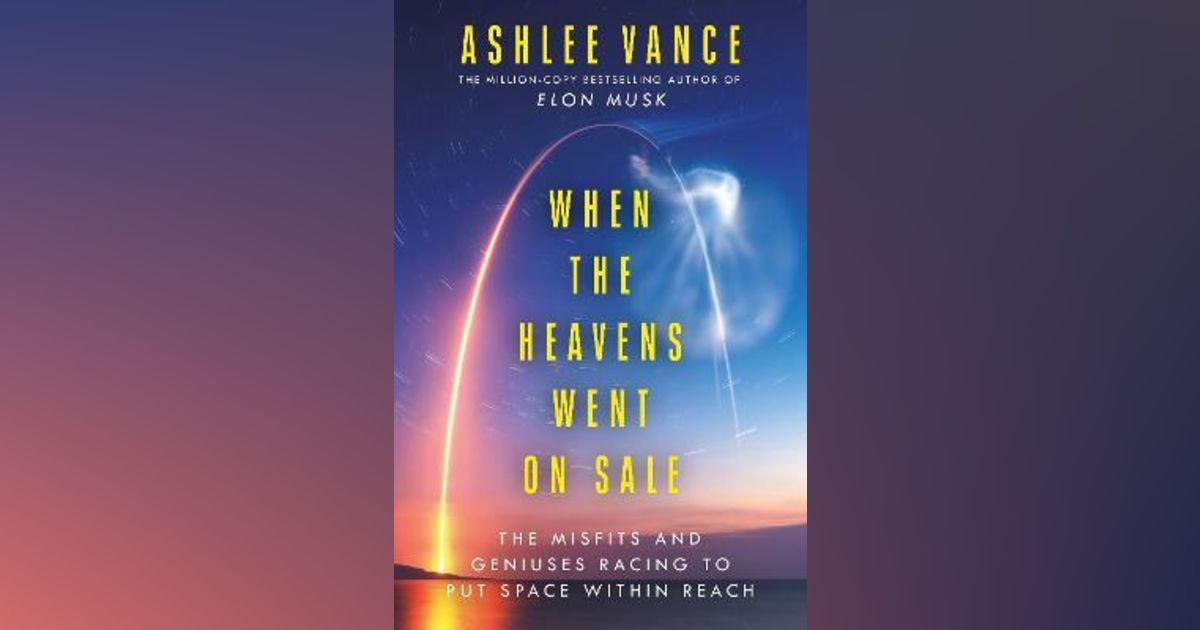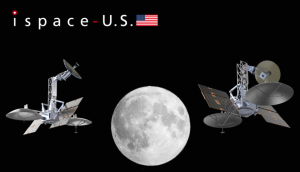Book Review: Ashlee Vance ‘When the Heavens Went on Sale’
14th Sep 2023
At one time, all US space activities and achievements were accomplished solely by the hands of NASA. The same thing was happening across the world – governments did it all. But everything is different today.
Ashlee Vance, an American journalist, spent years exploring the changing space industry. His book, “When the Heavens Went on Sale,” reflects the era when Silicon Valley enthusiasts with money challenged old-school space organizations to pursue their space dreams.
Vance became extremely popular for an autobiography about Elon Musk, but this time, he delved into the topic of launching an abundance of satellites into Earth’s orbit. In this ‘When the Heavens Went on Sale’ review we briefly explain what the book is about and is it worth reading.
When the Heavens Went on Sale: focus
The book dives into the stories of four space companies: Planet Labs (now “Planet”), Rocket Lab, Astra, and Firefly Aerospace. While Planet crafts Earth-observing satellites, the other three focus on building rockets. Thanks to tech advances, satellites are now smaller and cheaper. The rockets launching them are also downsized, leading to a rapid surge in satellites orbiting Earth.
Today, these small satellites serve various purposes, like delivering fast internet, studying deforestation, and monitoring conflicts. However, this surge has sparked concerns, with worries about hindering astronomy and collision risks in space.
Vance’s book provides a captivating look into the small satellite industry, stemming from five years of in-depth space reporting. Vance’s meticulous research and engaging storytelling make its 500+ pages a breeze to read. He interviewed key figures from all four companies, offering insights into their unique cultures and colourful stories.
Planet, Rocket Lab, Astra, and Firefly behind the scenes
The first two parts of Vance’s book explore the stories about Planet and Rocket Lab. The author gives a lot of information about them, exploring in detail the stories of the founders and how they came to the space business.
In the Rocket Lab part, the book tells the story of Peter Beck, the company’s founder. He started as a technician at a dishwasher company and then managed to start a space program in New Zealand, his homeland when American space companies rejected him.
The book takes a different turn when it talks about Astra. Vance had inside access when Astra was a secret company, with the name Stealth Space Company, for a time. He was there when they started building rockets and then crashing them, of course. This part also features actual conversations or stories from Astra people. Vance thought it might be hard for others to believe unless they experienced it themselves. But this actually not an exception for Vance – he gives a lot of transcribed dialogues by his main characters and the people who surround them.
The book sheds light on Max Polyakov’s sale of the Firefly Aerospace stake. There are still many questions about the government’s decision, but it’s exciting to know more about the man behind Firefly Aerospace’s recovery. Through the dialogues, you can feel the energy and vibe of the dreamer from Ukraine. But the American space business is solely for Americans – no matter how hard you work or how much money you’ve invested. However, thanks to Polyakov’s efforts, the US has one more serious player in the small launch vehicles market, and it keeps growing.
When the Heavens Went on Sale: Is it worth reading?
Ashley Vance’s book is definitely a source of unique information. If you found out there are plenty of private space companies one day that are launching rockets from the US soil, and now want to know more about their first years, this book is a must.
For a few hours, you follow the author into the Wild West of the new space age, almost sit at the same table with Peter Beck or Max Polyakov, laugh at their jokes and feel all of the pressure of the aerospace business. That’s the best way to understand who are the people behind successful rocket companies, what they talk like, and what conversations they have.
At this point, we slowly move to the drawbacks of the When the Heavens Went on Sale book. The writing style is sometimes too literal, and there are many ‘transcribed’ conversations which lack the author’s words. People knowledgeable about rocket technologies might also be disappointed by the lack of technical details and explanations of innovative technologies. This is not something you usually look for in biographies, but a little more tech would have been welcome, given the subject matter.






Thank you for your comment! It will be visible on the site after moderation.